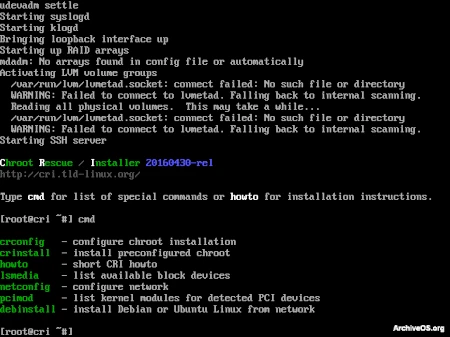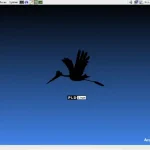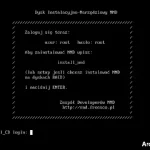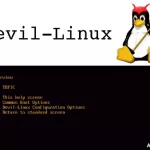Last Updated on: 9th November 2023, 04:40 pm
Web site: wiki.tld-linux.org
Origin: Poland
Category: Server
Desktop environment: CLI
Architecture: x86, x86_64
Based on: PLD
Wikipedia:
Media: Install CD/DVD
The last version | Released: 20190916 | September 16, 2019
![]() Zobacz po polsku: TLD
Zobacz po polsku: TLD
TLD Linux (Titanium Linux Distribution) – a small, server oriented, systemd-free distribution created by few admins for their needs and made available for anyone wishing to use it. System is dedicated for advanced Linux users and is provided in both 32 and 64 bit flavors and optimized for i686 and x86_64 architectures.
The project was created in 2007 as an unofficial version of PLD Linux Distribution called PLD Titanium. In 2010, due to a conflict between the leaders of the PLD and PLD Titanium, the project separated from PLD in 2011 and changed its name to TLD (Titanium Linux Distribution). Unfortunately, the limited amount of human resources led to stagnation in the development of the project, which resulted in the departure of users.
In April 2013, Titanium Linux Distribution was brought back to life as TLD Linux – a distribution dedicated to server machines, without a graphical desktop, with VNC/RDP support for managing virtual machines via GUI.
TLD Linux provides a stable and fully functional server system. System releases are based on snapshots, in two lines: stable and development.
The system can be installed on your computer’s hard drive via “Chroot Rescue / Installer” (CRI), which is available directly from the Install/NetInstall iso images. The installer, in addition to installing the TLD, also allows you to download and install the Debian or Ubuntu distribution.
CRI is a bootable live rescue and installer disk based on TLD Linux – small, hobbistic, systemd free distribution dedicated for server use. Live system contains set of standard Linux tools which will allow you to access and fix broken Linux installations as well as install new systems.
CRI 20190916 is based on TLD Linux. Debian/Devuan/Ubuntu based CRI images are no longer supported. Current release was built using TLD Linux 2019.01 and kernel 4.14.144.
CRI systems are loaded to and run from RAM. While it is possible to run them with 256 MB of RAM it is recommended to have at least 1 GB, especially if you plan to install additional software in live system.
Following software is available in rescue systems: i686, x86_64
Direct installation of base system from vendor servers/mirrors currently supports following distributions/releases:
– TLD Linux 2019.01
– Debian Stretch (old stable)
– Debian Buster (stable)
– Debian Bullseye (testing)
– Debian SID (unstable)
– Devuan ASCII (stable)
– Devuan Beowulf (testing)
– Devuan Ceres (unstable)
– Ubuntu Server LTS 18.04 Bionic
The founder and developer of the project since 2011 is Marcin Król.





